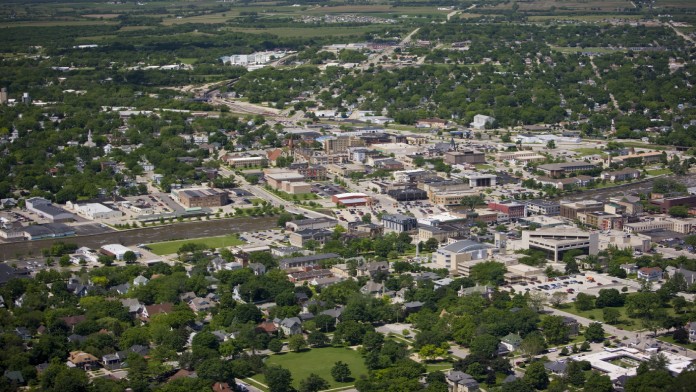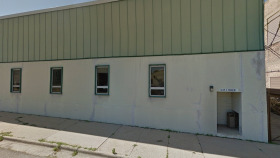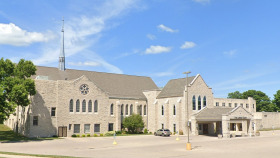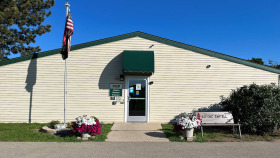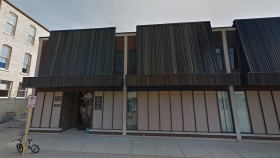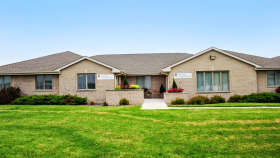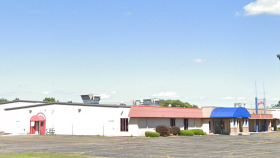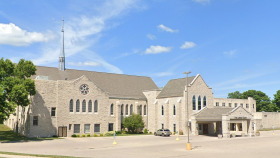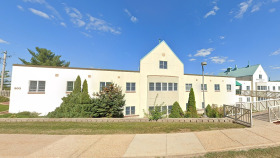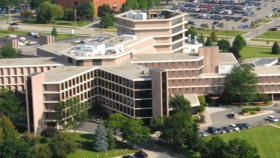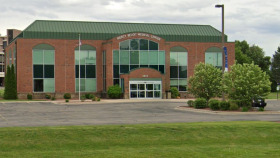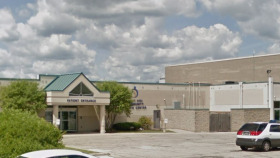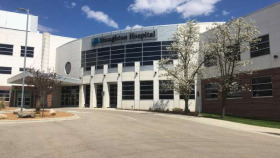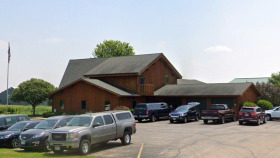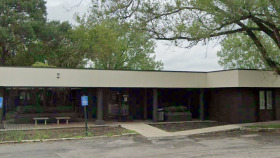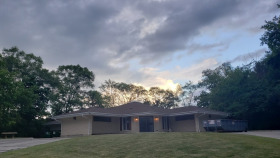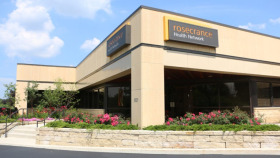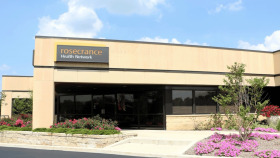Alcohol and Drug Use Statistics in Janesville, Wisconsin
Janesville, along with the rest of the nation, has been struck hard by drug and alcohol use in recent years:3,4
The number of rehab admissions due to opiate use disorder (OUD) in Wisconsin has skyrocketed 105% from 2009, with 2019 finishing at a total of 6,063 admissions.
While the number of meth-related rehab entries is relatively low compared to alcohol at 11,934, and admission for opiates, it has jumped 650% in the past ten years to 2,169 in 2019.
Levels of Care for Addiction Treatment Settings
There are various levels of addiction treatment, ranging in intensiveness and frequency of care. The right level for you depends on the length and severity of your addiction, your mental and physical health, your support system, and more.
Detoxification
Drug and alcohol detox is a controlled and supervised setting in which your body gets rid of addictive substances. Detox can occur in several settings, including outpatient and inpatient environments. Some are medically managed, which means doctors and nurses provide medications and medical care round-the-clock. Certain drugs, such as alcohol, benzodiazepines, and opioids, have particularly distressing and even dangerous withdrawal symptoms, so these drugs often necessitate detox.
Inpatient Care
Inpatient or residential drug rehab is the most intensive addiction treatment setting, providing 24/7 care, supervision, and monitoring. You live at the facility for the duration of the treatment program, which may last 30, 60, or 90 days. This setting may be best for someone with a severe addiction, polysubstance addiction, or co-occurring mental health disorder, like PTSD or depression.
Partial Hospitalization Programs (PHPs)
PHPs provide a high level of care while allowing you to live at home during the program. You go to the clinic every day for several hours per day but return home during non-treatment hours. It’s a great option for step-down care after completing an inpatient program or as an initial treatment program for someone who can’t necessarily go to inpatient care due to obligations.
Intensive Outpatient Programs (IOPs)
A step down from PHP, an IOP includes several hours of therapy for a few days per week. This option may be beneficial if you have a mild addiction and a strong support system. It may also be used as step-down care after completing inpatient or PHP.
Standard Outpatient
If you choose standard outpatient treatment, you attend therapy one to two days per week for one or two hours per session. Many people make their way through the continuum of care by first completing inpatient or an intensive outpatient program before stepping down to standard outpatient.
Aftercare
Once you’ve completed an addiction treatment program, you will want to continue receiving ongoing support, known as aftercare. You can collaborate with your treatment team on creating an aftercare plan that addresses your needs and preferences. Some people transition into a sober living home while others may join a support group, attending therapy, or all of the above.
How to Pay for Drug Rehab in Wisconsin
Cost shouldn’t be a barrier to quality addiction treatment. There are many ways to finance drug rehab so that you can get the help you need.
Use Private Health Insurance
If you have private health insurance through work or the Healthcare Marketplace, you can use your plan to at least partially, if not fully, cover substance abuse treatment services. Every plan is different—some fully cover inpatient rehab for a certain period while others may only partially cover residential. Make sure to call your provider to learn more. And once you know what your insurance provider will pay, make sure to find a rehab that is in-network with your provider.
BadgerCare (Wisconsin Medicaid)
BadgerCare is Wisconsin’s Medicaid program for low-income people, families, and pregnant individuals who don’t have access to private health insurance. BadgerCare covers drug and alcohol rehab in Wisconsin, including inpatient, outpatient, medication-assisted treatment, assessments, and beyond. Not every treatment facility accepts Medicaid, though, so you’ll want to do your research before committing to one.
Medicare
Medicare is a government program providing health insurance coverage to Wisconsin residents aged 65 and older or those with certain disabilities or health conditions. Like BadgerCare, Medicare covers substance abuse treatment services, such as outpatient rehab, residential treatment, and addiction treatment medications.
TRICARE in Wisconsin
TRICARE provides health insurance coverage for veterans, active-duty military personnel, and their families, and it covers much-needed drug rehab and alcohol rehab services as well as mental health treatment.
Sliding Scale Rehabs
Sliding scale rehabs are able to offer treatment at discounted rates depending on a person’s income, meaning that they only charge you what you are reasonably able to pay. This can greatly reduce the financial burden of drug rehab and enable you to seek the treatment you need to recover from addiction.
IHS-Funded Drug Rehabs
Some drug and alcohol rehabs receive funding from the Indian Health Service, which is a federal health program for Indigenous people in the U.S., including Alaskan Natives. These rehabs offer no-cost addiction treatment to Native Americans, whether they already have health insurance or not. However, the majority of IHS-funded drug rehabs are located on reservations, which may make it difficult for Indigenous folks in cities to access them.
Traveling to and Within Janesville, Wisconsin
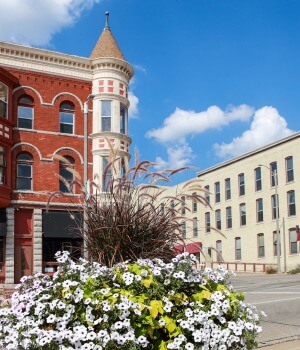 If you are moving to Janesville for addiction treatment or visiting a loved one in recovery, you will find it is a thriving smaller town full of the amenities you would expect in a big city.
If you are moving to Janesville for addiction treatment or visiting a loved one in recovery, you will find it is a thriving smaller town full of the amenities you would expect in a big city.
- Drive into town on the 90 highway from the Chicago Rockford International Airport, 34 miles away.
- If you don’t drive, you can get to the city using a shuttle service such as the Transit Van Shuttle or one of the many local taxis and town car services.
- The local bus system, the JTS (Janesville Transit System), provides local transit along five routes that run on weekdays and with a limited Saturday schedule.
- Take care of business at the town’s multiple business centers and malls, such as the Janesville Plaza or the Olde Towne Mall, and get some shopping done at one of the numerous retail shops and grocery stores.
- Explore the historic background of the city at the Rock County Historical Society, the Gates of Heaven Temple, the Rockmen Guardians, and the 9-11 Memorial site.
- Enjoyers of the arts can appreciate a show at the Janesville Performing Arts Center or catch a flick at the Movie 16: Janesville theater.
- The Rotary Botanical Gardens offers 20 acres of unique plant life and gorgeous scenery, perfect for an afternoon escapade.
- There are numerous community events each week, like those held at the Rock County Chamber Orchestra or the Janesville Library.
Alcohol and Drug Laws in Wisconsin
Alcohol and Drug Laws in Wisconsin:1,2
Wisconsin Naloxone Access and Administration Law: Residents of Wisconsin can obtain naloxone (Narcan) without a prescription and they can also administer it to an overdosing person once they’ve had proper training.
Wisconsin State Good Samaritan Law Amendment: Bystanders in possession of drugs can call 911 to help someone who is overdosing without the risk of being arrested and prosecuted for possession.
Resources
- Center for Disease Control. (2022). U.S. County Opioid Dispensing Rates, 2019.
- Substance Abuse and Mental Health Administration. (2022). Treatment Locator Tool.
- Center for Disease Control. (2022). CDC Wonder Tool.
- Substance Abuse and Mental Health Administration. (2022). Treatment Episode Data Set (TEDS) 2019.

